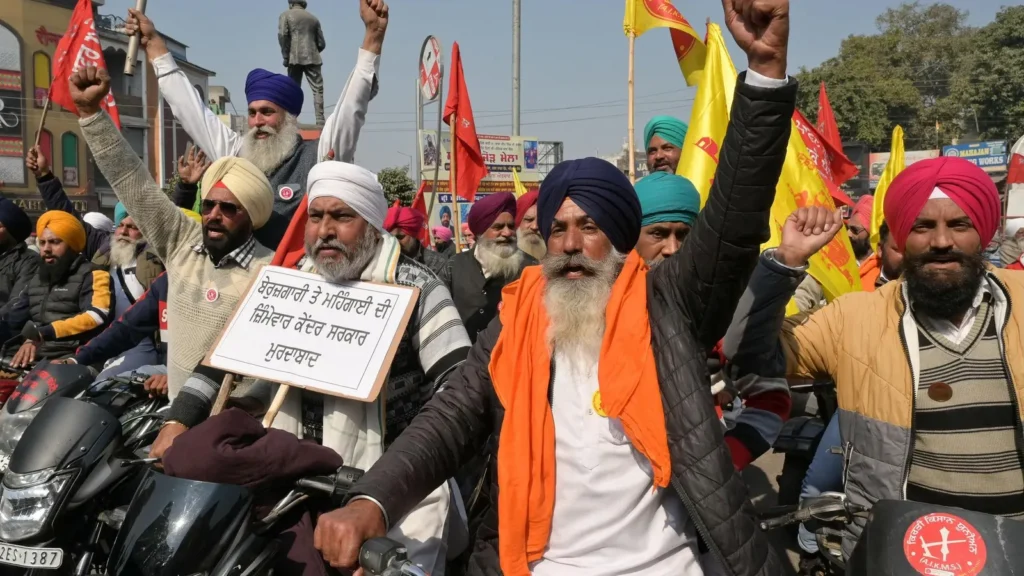- Web
- Feb 20, 2026
Indian farmers endure heatwave, continue protest amid election
-

- Reuters
- May 28, 2024

SHAMBHU BORDER: Living in furnace-like conditions in the middle of a national highway as they braved gusts of heatwave that fiercely beat against their burnished faces, hundreds of Indian farmers have been camping for over 100 days between Punjab and Haryana states to demand better prices for their crops.
Despite the savage spell of heatwave sweeping large swathes of northern India, the farmers have stationed themselves at the Shambhu border since their protest began in mid-February. But living in makeshift homes made out of tractor-trolleys covered with tarpaulin can make temperatures that hit 45-46 degrees Celsius (113-115 degrees Fahrenheit) feel like 50 degrees Celsius (122 degrees Fahrenheit).
Spain, Ireland, Norway set to recognise Palestinian statehood
On February 13, thousands of Punjab’s farmers launched a “Delhi Chalo” (Let’s go to Delhi) march, setting out for the capital in trucks and tractors loaded with bedding and food.
However, security forces in riot gear, used teargas and water cannons to force them to halt about 200 km (125 miles) short of their destination, where they have camped since, dwindling to just hundreds.
Most farmers and leaders whom Reuters spoke to say they have no intention of calling off their protest or going home until their demands are met.
“They have decided to sit and will continue to sit despite the problem of dehydration, less availability of drinking water or other facilities, but they are still sitting and have a firm determination,” said Dharamvir Dhinsa, a farmer leader from the neighbouring district of Ambala.
A medical relief tent at the site has been working overtime, providing first-aid to those suffering heat-related illnesses.
Canada ‘horrified’ by Israeli attack in Rafah
Hundreds of patients were being treated for various ailments on a daily basis, out of which the vast majority are suffering from heat-related problems, including nausea, dehydration and heat strokes, said Dr Swaran Singh Kansal as he attended to patients.
Most were treated on the spot but those more seriously ill were sent to nearby hospitals for proper care, he said. The farmer groups are seeking guarantees, backed by law, of more state support or a minimum purchase price for crops.
Prime Minister Narendra Modi’s government, following a similar year-long protest, had repealed some farm reform laws in 2021 and committed to setting up a panel to find ways to ensure support prices for all produce. Farmers accuse the government of going slow on that commitment.
Voting in India’s national elections began on April 19 and will conclude on June 1, with results due on June 4.
With polls in Punjab due on Saturday (June 1) during the last and seventh phase of the staggered elections, farmers said they are not keen about voting this time and that Modi’s Bharatiya Janata Party (BJP) will not find much support in the state.
California: 81-year-old ‘serial slingshot shooter’ arrested
Many said they have been let down by all political parties who had promised much but delivered next to nothing.
At the last meeting with leaders of farmers’ unions, the government proposed minimum support prices to farmers who diversify their crops to grow cotton, pigeon peas, black mate, red lentils, and corn, but the leaders rejected this offer, demanding that other grains also be covered.
Modi and his government have not commented much on the farmers protests but have, in the past, said they are committed to the welfare and prosperity of farmers and are ready to discuss all issues.




